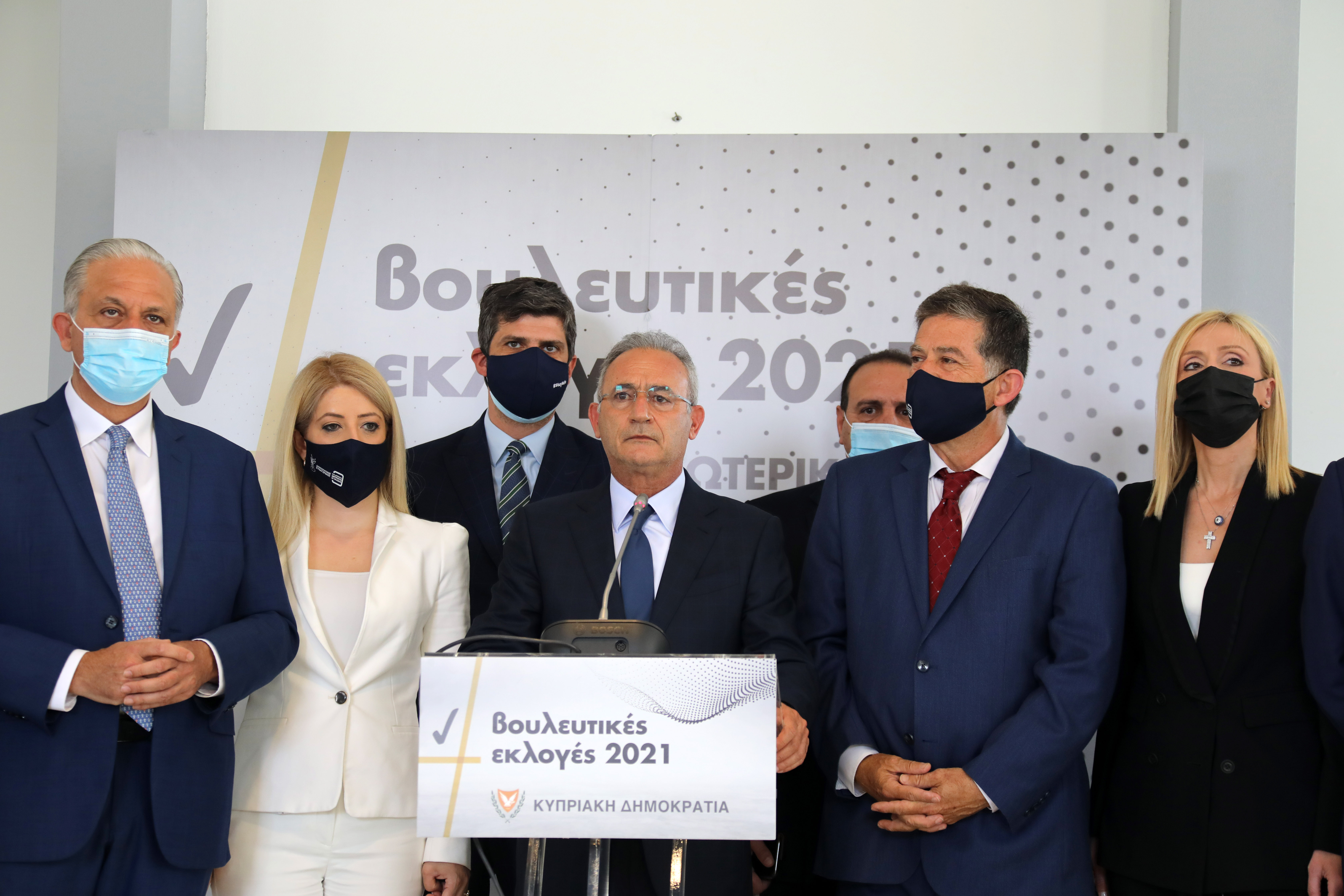In the end, the biggest losses in Sunday’s parliamentary elections were suffered by the three big parties, which had dominated the campaign and hogged the headlines with their acrimonious, daily exchanges. Disy saw its share of the vote contract by 2.9 per cent compared to 2016, Akel by 3.3 per cent and Diko by 3.2 per cent, but of the three only the former has reason to be satisfied with its showing.
Despite the daily battering it had received from the rest of the parties, but especially Akel and Diko about corruption, and having been in government for eight years, which usually has a corrosive effect on a party, Disy emerged from the elections largely unscathed. It remained the biggest party, having lost just one seat, a result that was a personal victory for Averof Neophytou, who, until the last two weeks of the campaign when the government became involved, held the fort on his own.
Akel and Diko’s disappointing showing could be interpreted as punishment by the voters for the unremitting negativity they exhibited in the legislature, culminating in the blocking of the 2021 state budget, and for the toxicity of their campaign discourse which was focused on telling us how bad Disy and the government were. In contrast, Disy and the government, had a positive message and offered people a vision for the country’s future, reinforcing the campaign message that they get things done.
Of the smaller parties, the victors were newcomer Democratic Front (Dipa) which secured an impressive 6.10 per cent of the vote and the far-right Elam that finished fourth, increasing its share of the vote by three percentage points and doubling the number of seats it had in parliament to four. Concerns have been expressed about the strengthening of Elam, but the growth of far-right nationalist parties is a Europe-wide phenomenon and not specific to Cyprus. The party has turned its back on it links with Greece’s Golden Dawn in its quest for acceptance, a move that worked as the election results showed.
People’s supposed disaffection with the political system was illustrated by the relatively low turnout of 65.72 per cent rather than causing any big surprises. Six of the seven parties represented in the old parliament returned, the only one failing being Solidarity, which was replaced by Dipa, a moderate, centrist party. The distribution of seats will have been welcomed by the government, because with the 12 votes represented by Dipa, Elam and Edek, plus those of Disy it would have majority backing for its bills. The latter two had often backed government bills, eschewing the dogmatic negativity of Akel and Diko.
All indications are that by weakening the opposition axis of Akel and Diko, elections have produced a parliament that would be more constructive and positive than the last one.







Click here to change your cookie preferences